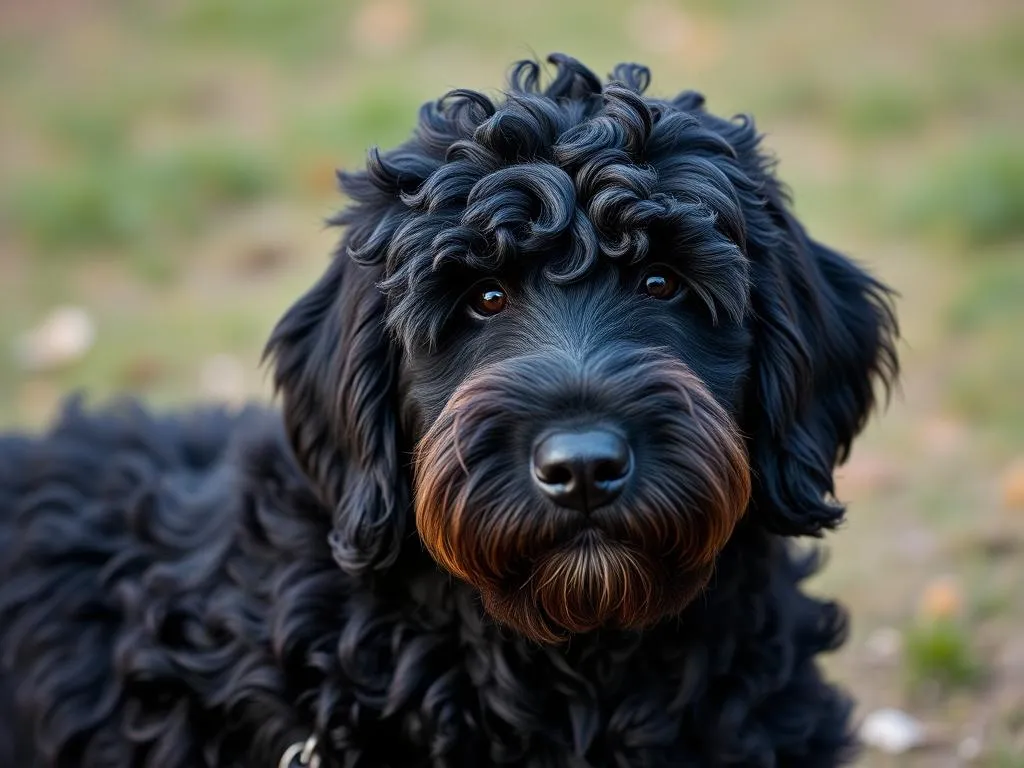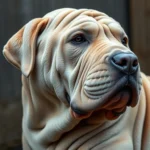
Understanding dog breeds is essential for potential dog owners, as each breed comes with its unique set of characteristics, behaviors, and care requirements. Among the many breeds available today, the Goldendoodle stands out as a popular crossbreed, known for its friendly demeanor and hypoallergenic coat. This article will focus specifically on the black Goldendoodle, exploring its unique traits, grooming needs, behavioral characteristics, health considerations, and much more.
Understanding Dog Breeds
Definition of a Dog Breed
A dog breed is a specific group of domestic dogs that have distinct characteristics, including appearance, temperament, and behavior. These traits are often the result of selective breeding, which has been practiced for centuries to enhance desired qualities. Understanding breed characteristics is crucial for potential owners, as it aids in selecting a dog that fits their lifestyle and preferences.
Purpose of Different Breeds
Dog breeds are generally classified based on their primary purpose:
- Working Dogs: Bred for tasks such as guarding, herding, or assisting the disabled.
- Companion Dogs: Primarily kept for companionship and affection.
- Show Dogs: Bred to conform to specific breed standards for competitive showing.
Breeds can also be categorized into various groups, such as herding, sporting, hound, terrier, toy, non-sporting, and more. Each classification offers insights into the dog’s instincts and needs.
The Rise of Designer Breeds
In recent years, designer breeds have gained immense popularity. These hybrids are typically created by crossing two purebred dogs, aiming to combine the best traits of both breeds. One appealing aspect of designer breeds like the Goldendoodle is hybrid vigor, where crossbreeding can lead to healthier offspring with fewer genetic issues.
The Goldendoodle: An Overview
History of the Goldendoodle
The Goldendoodle originated in the late 1990s in North America, with the goal of creating a friendly, intelligent, and hypoallergenic companion. This breed is a cross between the Golden Retriever and the Poodle, both of which are known for their intelligence and sociable nature. The idea was to combine the Golden Retriever’s friendly disposition with the Poodle’s low-shedding coat, resulting in a family-friendly dog that can thrive in various living situations.
Characteristics of Goldendoodles
Goldendoodles come in three size variations: Miniature, Medium, and Standard. This variety allows potential owners to choose a size that fits their home and lifestyle best.
- Coat Types and Colors: Goldendoodles can have different coat types, including wavy or curly. The black Goldendoodle stands out for its striking dark coat, adding a unique charm compared to other common colors such as cream, apricot, and red.
- Temperament and Behavior Traits: Generally, Goldendoodles are friendly, intelligent, and eager to please, making them excellent family pets. They are known for their playful nature and adaptability, thriving in various environments.
Popularity and Current Trends
The popularity of Goldendoodles has soared in recent years. Statistics show that they consistently rank among the top dog breeds in the United States. Their appeal lies in their friendly nature, intelligence, and low-shedding coats, making them suitable for families with allergies and those looking for an affectionate companion.
The Black Goldendoodle
Unique Traits and Characteristics
The black Goldendoodle is distinguished by its beautiful, deep black coat, which can vary in texture from wavy to curly. This unique color often garners attention and admiration. Compared to Goldendoodles of other colors, black Goldendoodles may have a slightly different appearance due to their coat’s reflective properties, giving them a sleek and polished look.
Coat and Grooming Needs
Grooming is an essential aspect of caring for a black Goldendoodle. Their coats require regular brushing to prevent matting and tangles. Depending on the coat type, they may need professional grooming every 6 to 8 weeks. Here are some grooming tips:
- Daily Brushing: Helps prevent tangles and keeps the coat healthy.
- Bathing: Bathe as needed, typically every 4 to 6 weeks, using a gentle dog shampoo.
- Ear Cleaning: Regularly check and clean ears to avoid infections, especially in curly-coated varieties.
Behavioral Traits
Black Goldendoodles are generally known for their friendly and outgoing personalities. They are often social, good with children, and make excellent companions. Early socialization is crucial to ensure they grow into well-rounded adults. Here are some common traits:
- Intelligent: They are quick learners, making training easier.
- Affectionate: They thrive on human interaction and are known to bond closely with their families.
- Energetic: Regular exercise is essential to keep them healthy and happy.
Health Considerations
Common Health Issues in Goldendoodles
Goldendoodles can inherit health issues from their parent breeds, the Golden Retriever and the Poodle. Some common health concerns include:
- Hip Dysplasia
- Elbow Dysplasia
- Allergies
- Certain types of cancer
While black Goldendoodles do not have specific health concerns based solely on their color, they may still be prone to the same issues as Goldendoodles in general.
Regular Health Check-ups
Routine veterinary check-ups are crucial for maintaining your black Goldendoodle’s health. Regular visits allow for early detection of any potential health issues. Vaccinations and preventive care, such as flea and tick control, are also essential for their overall well-being.
Nutrition and Diet
A balanced diet is vital for the health and longevity of any dog, including the black Goldendoodle. High-quality dog food that meets their specific nutritional needs is essential. Here are some dietary tips:
- Protein: Look for food that lists a high-quality protein source as the first ingredient.
- Age-Appropriate Food: Puppies, adults, and senior dogs have different dietary requirements.
- Feeding Schedule: Establish a regular feeding routine, typically two meals a day for adults.
Training and Socialization
Basic Training Techniques
Training is essential for all Goldendoodles, including black Goldendoodles. Their intelligence makes them receptive to learning, but consistent training is necessary to harness their energy and enthusiasm. Here are some effective training techniques:
- Positive Reinforcement: Use treats and praise to reward good behavior.
- Consistency: Be consistent with commands and rules to avoid confusion.
- Short Sessions: Keep training sessions short and engaging to maintain their interest.
Socialization with Other Pets and People
Early socialization is crucial for black Goldendoodles to ensure they grow up to be well-adjusted adults. Introducing them to various environments, people, and other animals helps reduce fearfulness and enhances their sociability.
Advanced Training and Activities
Once basic training is established, consider advanced training options like agility classes or therapy dog training. Goldendoodles excel in activities that challenge their minds and bodies. Here are some suggested activities:
- Agility Training: Engaging and fun, agility training helps improve coordination and obedience.
- Therapy Dog Programs: Their friendly nature makes them ideal candidates for therapy and service roles.
- Outdoor Activities: Hiking, running, and swimming are excellent ways to keep them physically stimulated.
Living with a Black Goldendoodle
Ideal Living Conditions
Goldendoodles, including black Goldendoodles, can adapt to a variety of living conditions. However, they thrive best in environments where they can receive ample exercise and attention. Here are some considerations:
- Space Requirements: While they can live in apartments, access to outdoor space for exercise is beneficial.
- Family Environment: They flourish in family settings, where they can engage with children and other pets.
Exercise Needs
Regular exercise is crucial for the health of a black Goldendoodle. They require daily physical activity to keep them fit and to prevent boredom-related behaviors. Recommended exercises include:
- Daily Walks: At least 30 to 60 minutes of walking each day.
- Playtime: Interactive games like fetch and tug-of-war can help burn off energy.
- Mental Stimulation: Puzzle toys and training games keep their minds active.
Family Compatibility
Black Goldendoodles are known for their compatibility with families. Their friendly and gentle nature makes them great companions for children. They typically get along well with other pets as long as they are properly socialized. Their affectionate demeanor and playful spirit can enrich family life, making them a joy to have around.
Conclusion
In summary, the black Goldendoodle is a delightful breed that combines the best traits of the Golden Retriever and Poodle. Understanding their unique characteristics, grooming needs, behavioral traits, and health considerations is essential for potential owners. This breed’s friendly demeanor, intelligence, and adaptability make them a fantastic choice for families and individuals alike. As with any dog breed, thorough research and consideration of their needs will help ensure a happy and healthy life together.
FAQs
What is a black Goldendoodle?
A black Goldendoodle is a hybrid breed created by crossing a Golden Retriever with a Poodle, resulting in a dog with a striking black coat.
Are black Goldendoodles hypoallergenic?
While no dog is completely hypoallergenic, Goldendoodles are known for their low-shedding coats, which may be more suitable for allergy sufferers compared to other breeds.
How much exercise do black Goldendoodles need?
Black Goldendoodles require at least 30 to 60 minutes of exercise daily to keep them physically fit and mentally stimulated.
What are the grooming needs for a black Goldendoodle?
Regular brushing is essential to prevent matting, and professional grooming every 6 to 8 weeks is often recommended to maintain their coat health.
Are black Goldendoodles good with children?
Yes, black Goldendoodles are known for their friendly and gentle nature, making them excellent companions for children and families.





